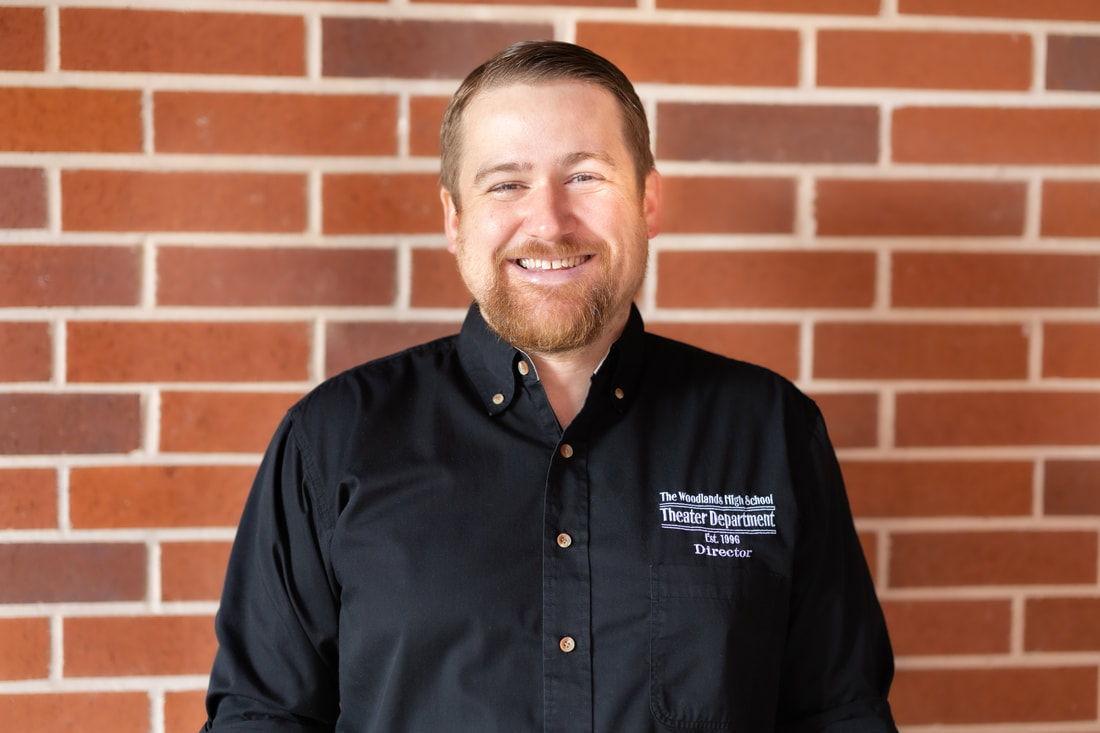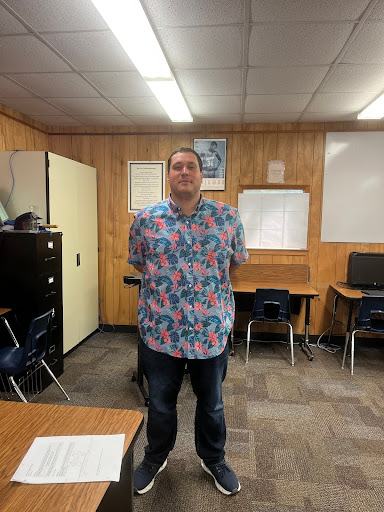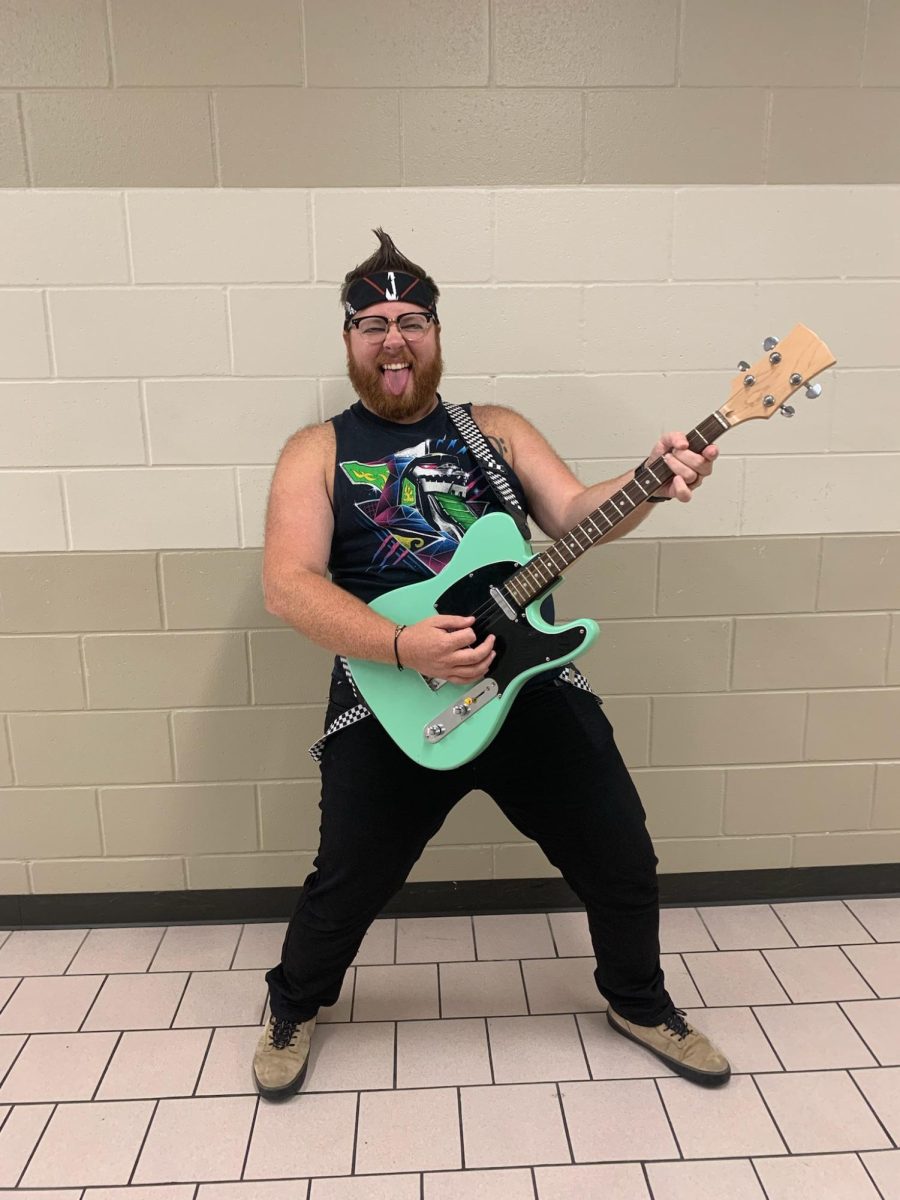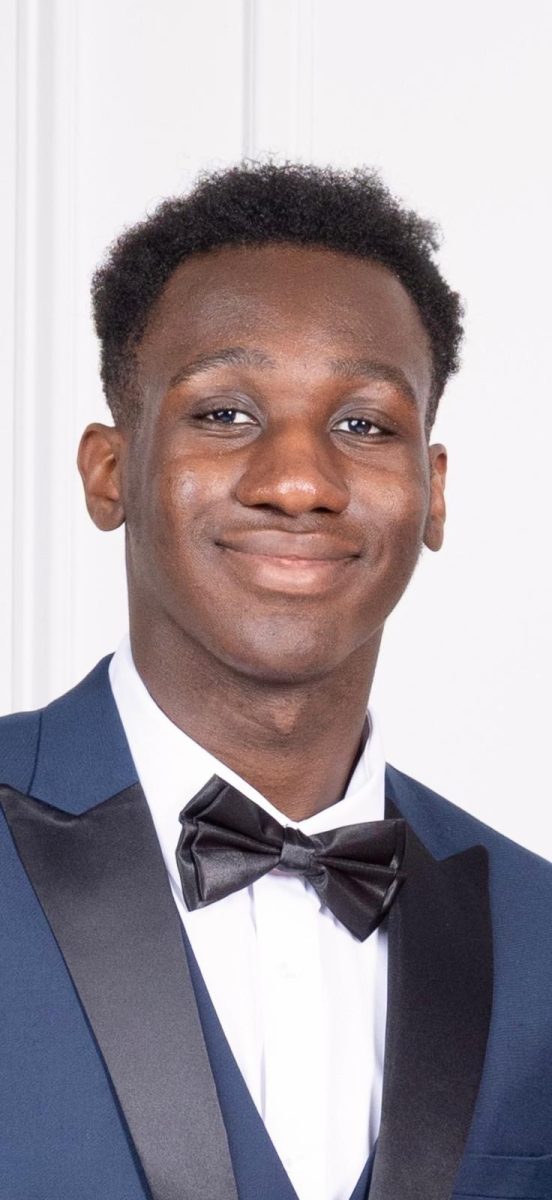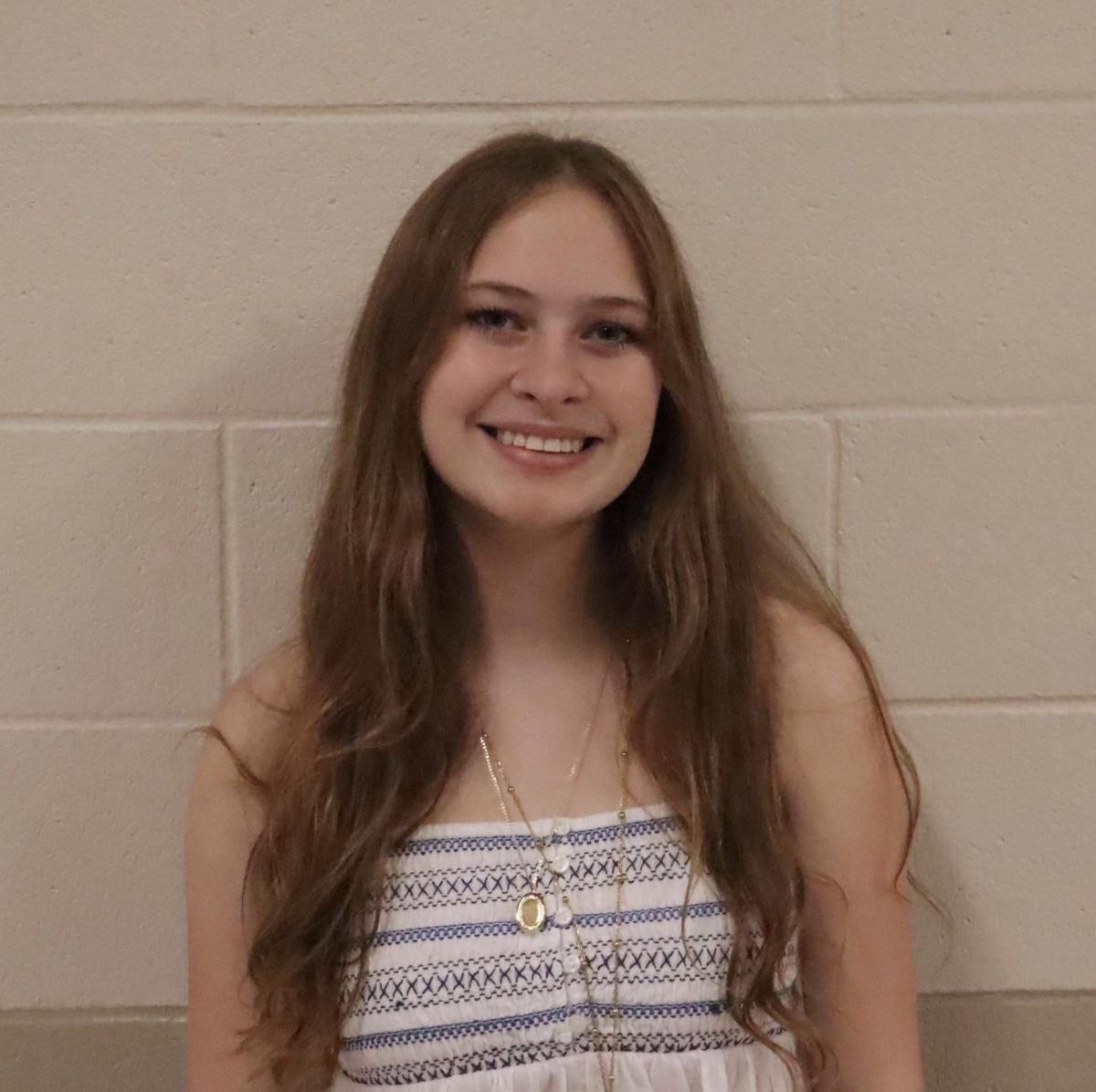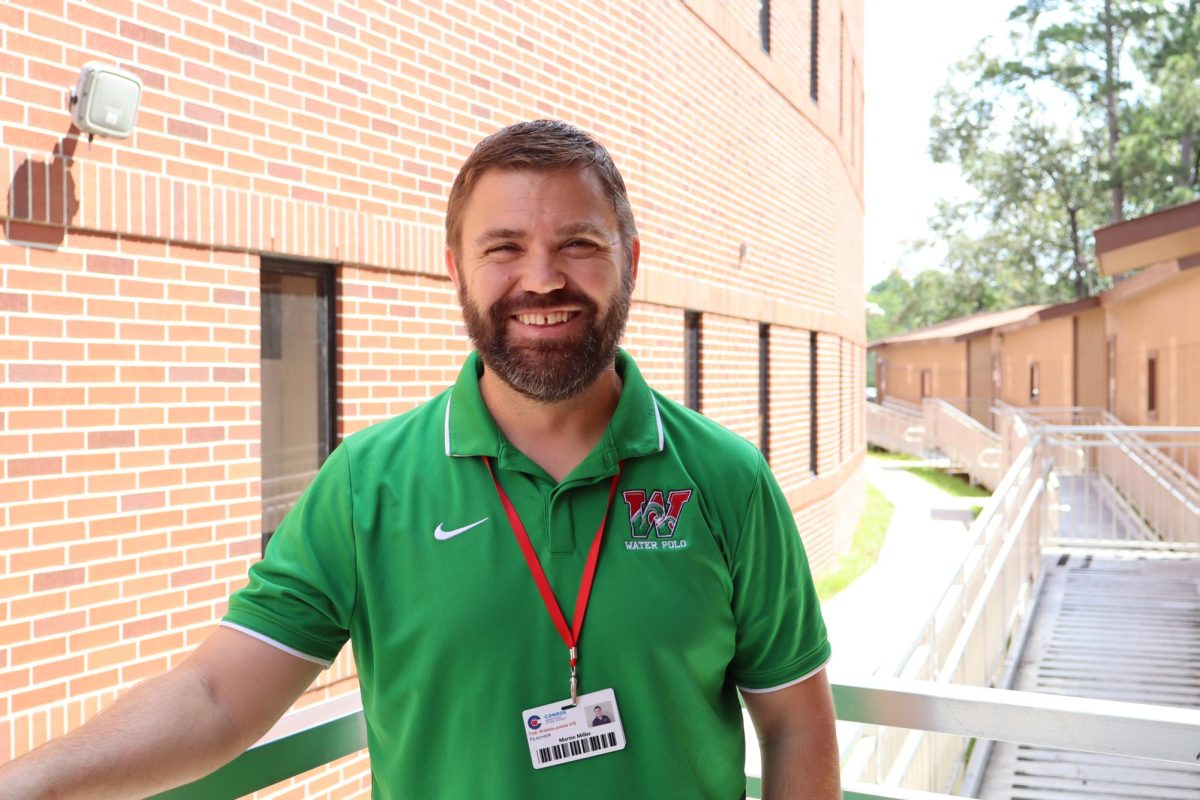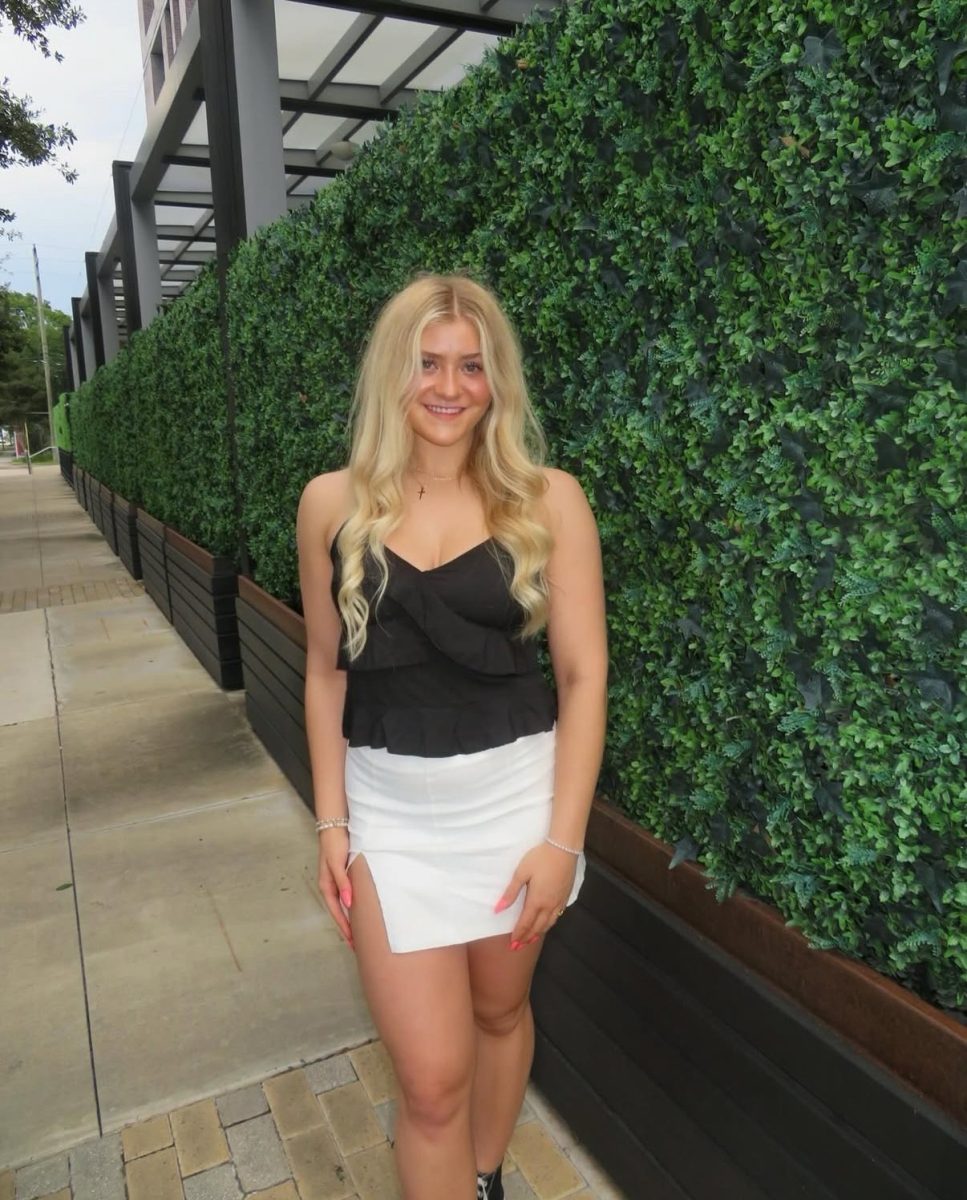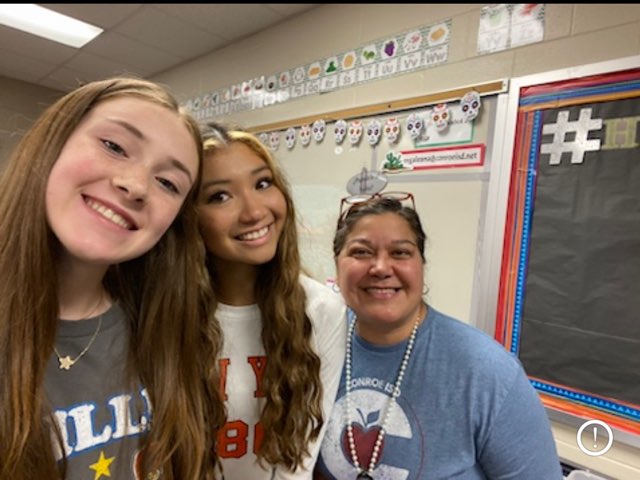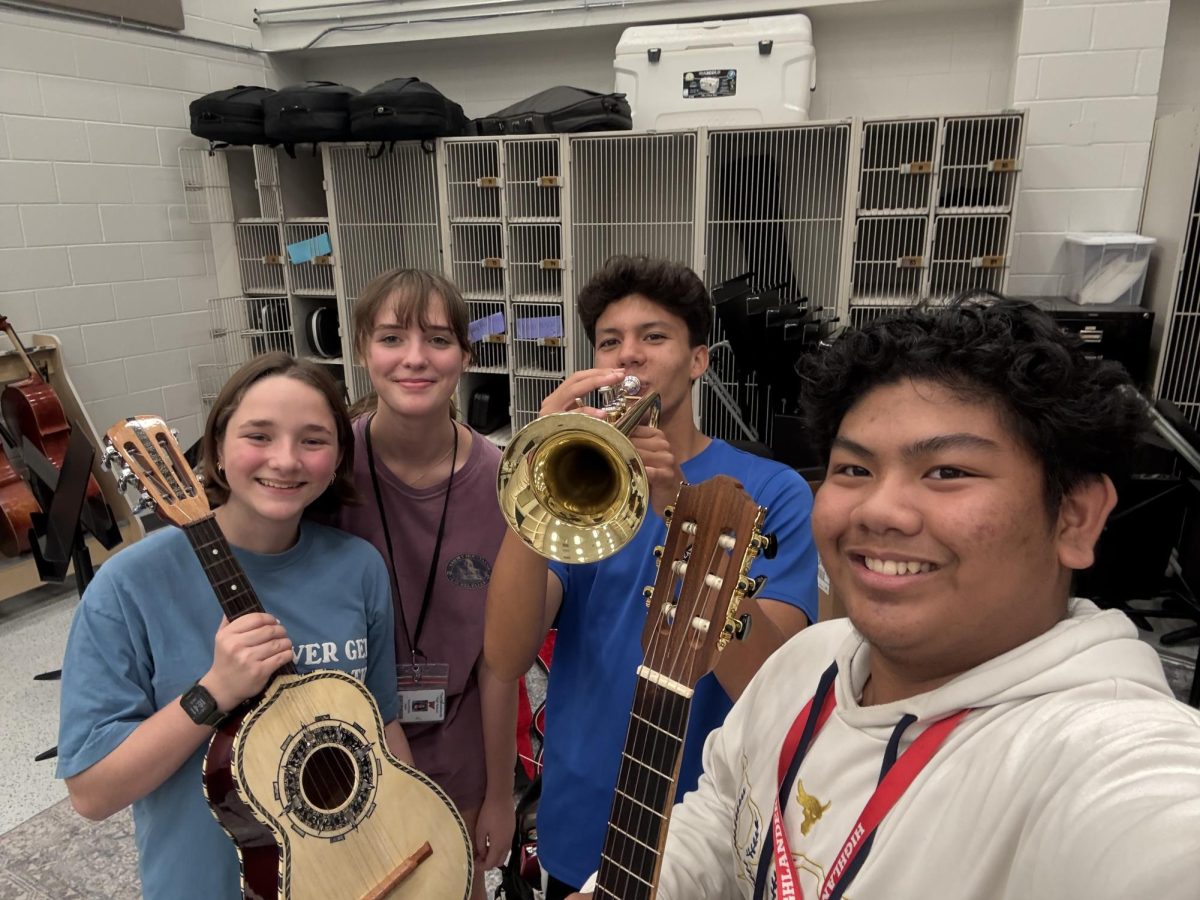When you think about theater as a concept, what do you imagine? The moment you hear the word theater, what goes through your mind?
Honestly, for me, theater means family. I guess, is the first thing that pops into my mind. It’s a group of people who are creating something and striving towards a common goal. And I think something that everyone needs to do is, work together to create something that is impactful. So when I think of theater, I think of all different types of people, from all different walks of life, being able to come together to create a piece of art, that can bring joy to others, that can make other people think, make other people have conversations,-because I think that’s the most important thing about art in general, right, is, making sure that we have those conversations, about what we like, what we didn’t like, and learning how to communicate with each other effectively.
You mentioned family in your conversation. So how is your life outside of teaching? Do you spend time with your family a lot?
I do, I do. So my wife and I will have been together for fifteen years tomorrow. We have two boys, one is seven and one is four. Then I have two cats, and one dog. Both of them are doing sports, and so we’re doing that, that whole thing. And, my oldest is in Cub Scouts, so we do that as well. So, as soon as I leave here, I am just as busy as I am, during the day. But, yeah, I love hanging out with my family, hanging out with my friends. I mean, they’re the people that are always in your corner.
So, like, you teach a lot of students, like a lot of students. This is a very big campus.So what do you feel is your biggest responsibility to the students that you teach when you teach?
Yeah. So honestly, I think it is like this for any teacher. Yes, I want you to learn the course content. Yes, I want you to learn about theater and find an appreciation for theater and find that you know, even if, like, theater is not your thing, performing or acting or theater is not one of the things that you like to do, at least you can perform it. When I look at the content, that’s kind of what I’m looking at. But at the end of the day, as a teacher, I want to hold my students to a high standard and try to help them achieve things that they don’t think that they can achieve, and kind of push them in the right direction to achieve the greatness I see in them that sometimes they can’t see in themselves. And, really just try to when they leave here, this campus or whatever, that they go out into society, and become strong members of society, making sure that they’re empathetic of others, making sure that they’re willing to listen, making sure that they, you know again, not only are we trying to teach you the content, we’re trying to make you good humans. So, that’s kind of the ultimate goal for me.
So theater, as you know, is a fine art subject. Some would consider “academics” more important than fine arts. What would be your response to that kind of thinking?
Sure, I mean, I think a lot of people probably talk about the stem of it all. Right? The science, the math. But I think, again, as I said before, as teachers, our goal is to make sure that we’re creating well-rounded students who aren’t just focused on the academics of it all. I think art is that one thing that allows us to think outside of ourselves. I think sometimes with math and science we’re kind of thinking about ourselves and the problems.
But I also think that life isn’t always about studying; life isn’t always about memorizing facts and figures. And I’m a History major, so I love memorizing things. I love facts and figures, but sometimes we just need to go to a place whether it’s an art gallery or it’s a theater performance or it’s a music concert or something like that just to be reminded- sometimes of the beauty- that can be created by humanity; especially in kind of the crazy time that we live in right now with so much divisiveness, so much hate, [it is nice to see] that humanity can come up with some pretty wonderful things. I think art kind of bridges that gap sometimes, where sometimes we can’t agree on certain life things, but we can all sit down and agree on, “man, that’s some really great music, or that was a really great performance” or even “touched me in a way I didn’t think it would.”
So I think, when we look at the arts in general, I think that more than the subject, it shows us what it’s like to be human. It shows us what it’s like to create something new- with History, we’re regurgitating facts. With Math we’re regurgitating formulas, with Science we’re regurgitating those formulas as well; I think with art we’re creating something new. Now all of those other subjects are creating stuff new all the time, in English you write books and novels and stuff like that, but I think [overall] that’s what I love the most about the Arts.
You spoke about being a History major. So, other than Theater, what is one subject you always want to kind of learn about, or teach, or do anything with- but you never were able to fully go into that subject?
I kind of did fully go into it, when I went to History, which would be that subject. I love English and History, I love reading, I love that stuff; math and science have never been my strong suit. That part of my brain does not fire as well as I’d like it to. But History and English have always been kind of passions of mine. I’ve always loved reading history. I think it’s just so interesting to see outcomes of certain things. We always talk about our choices, especially with my kids right now. We talk about red choices and green choices and I think it’s really interesting to see how choices that have been made in history have that ripple down effect. It’s not just to make the choice and then the consequence and move on. There’s a ripple effect and I think, you know, I completely agree 100%, you know, that idea of, we gotta teach all elements of history, right, or we’re doomed to repeat it, especially the bad stuff. Is humanity perfect? No. And we’re never going to be. But, I think you can see in history, you can see those moments of, like, oh, okay. It’s not as bad as we think it is. Right? And there is hope and there is some positivity going on. So I would say, I could sit and read history books all day.
[History and English, I think, kind of come with the territory of being a drama specialist]
I always tell people, like, the great thing about history is that I think theater is why most theater people are good at history: because we have those imaginations and when I’m reading historical texts, I kinda see it. I see it acting out in my head with all these political players and…
It is like a mini-play in your head.
Yes. And I really love wartime history. World War II, American Revolution, things like that. I like the strategy, the tactics, the trying to try to trick the opposite, and stuff like that. So I think that’s kinda cool, like the espionage of it all, the James Bond, the spies.
You can keep up with what is coming up next with TWHS Theater Department on their website, https://www.twhstheater.com/.


